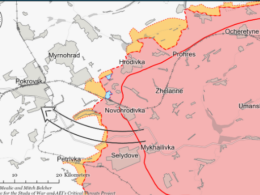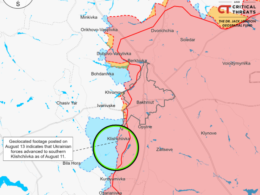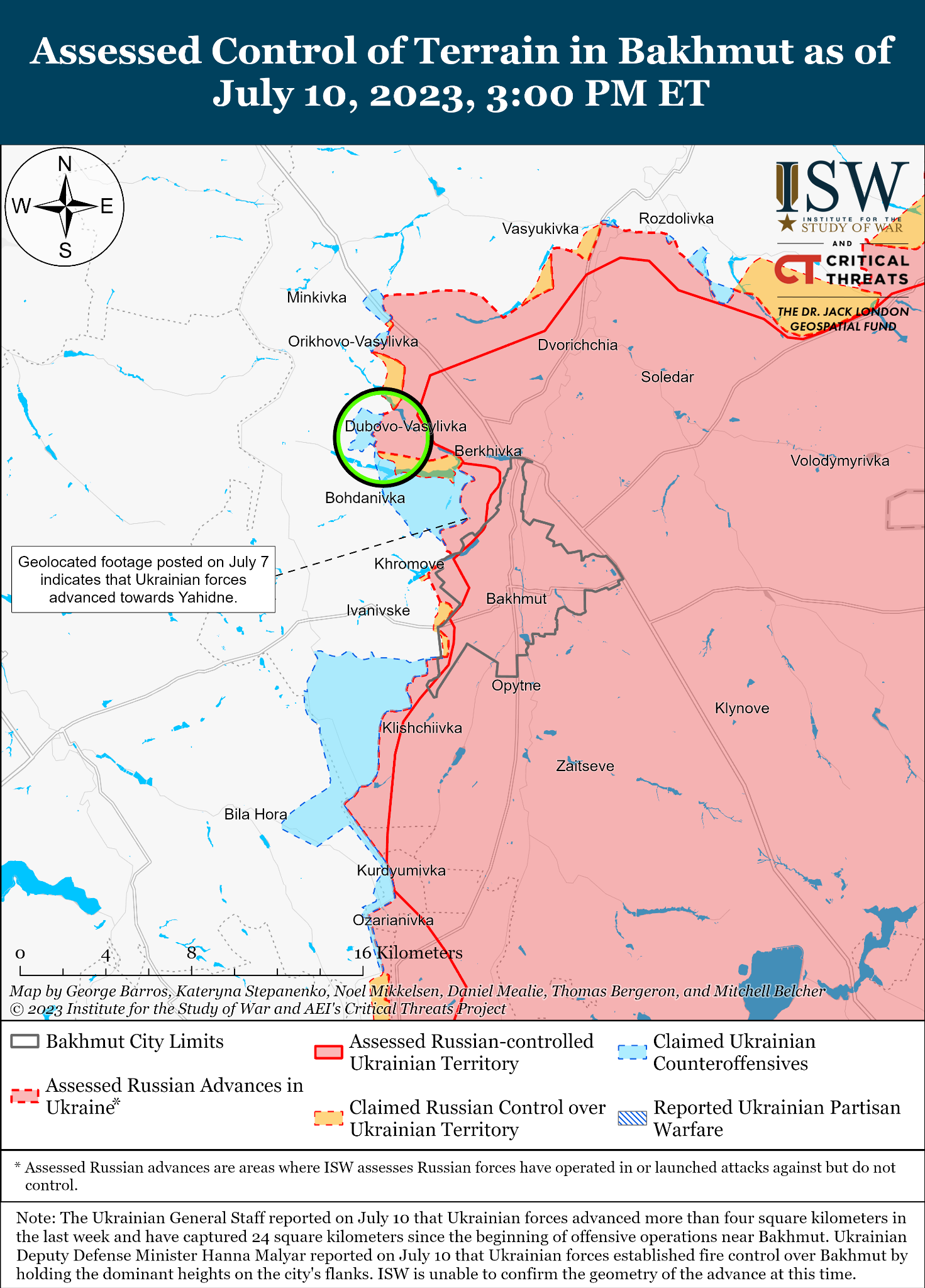Ukrainian strikes on Russian rear areas degrade the morale of Russian forces in Ukraine, potentially threatening the stability of Russian defenses in key frontlines, the Institute for the Study of War said in its daily report.
Russian forces on the frontlines, particularly in the southern regions of Ukraine, commonly face challenges maintaining high morale due to Ukrainian attacks on their rear zones.
“Morale issues can quickly intensify and spread among Russian frontline units if one unit under pressure breaks, which could spread panic and significantly reduce the combat effectiveness of other Russian forces,” ISW said.
A broken Russian frontline unit would threaten the integrity of other frontline defenses, and such a break in the Russian frontline would provide a vulnerability that Ukrainian forces could exploit.
Russian forces also likely lack the necessary reserves to rotate out or quickly replace a broken unit, as ISW has previously assessed, making the preservation of morale in frontline units imperative.
“Morale issues pertaining to the Russian defense against Ukrainian counteroffensive operations are only relevant if Ukrainian forces can degrade Russian morale to the breaking point and take advantage of it; these morale issues will not matter if Russian forces do not break under this pressure. There is no way to predict if, when, or where a Russian unit might break under sustained pressure, but Ukrainian forces are setting conditions to increase the likelihood of such a development.
” the Institute concluded.
SBU head unveils details of the ingenious first strike on Crimean Bridge
In addition, the institute reported that Ukrainian strikes targeting Russian deep rear areas had sparked discontent and critical discussions within the Russian information landscape, aligning with Ukraine's potential objectives.
Russian milbloggers have voiced frustration over recent Ukrainian attacks on the Crimean Bridge, proposing a controversial strategy of targeting the families and properties of Ukrainian decision-makers to discourage further strikes.
These milbloggers drew parallels with historical Soviet and Russian retaliatory tactics used in Lebanon and the northern Caucasus, underscoring the argument that Ukrainian strikes lack a direct impact on Russian officials' daily lives, making retaliation less imperative. Rodion Miroshnik, former Ambassador of the Luhansk People's Republic (LNR) to Russia, noted the normalization of strikes against Moscow, urging Russian forces to adopt more personally consequential retaliatory measures.
A revealing claim by an insider source highlights the vulnerability of Russian air defenses, as they failed to activate against a strike on a Kursk City rail station, echoing a frequent complaint among milbloggers about insufficient protection of Russian territory.
Additionally, the UK Ministry of Defense inferred that higher Russian leadership and the ultranationalist information space are jointly pressuring the Russian military command to enhance air defense coverage in western Russia in response to escalating strikes.
Read also:
- Crimea bridge in smoke after double attack. Russia reports three missiles downed
- Drone attack hits building in central Moscow
- Huge explosion happened on the territory of Zagorsk military factory near Moscow
- ISW: Russian milbloggers continue their silence on Ukrainian bridge attacks



